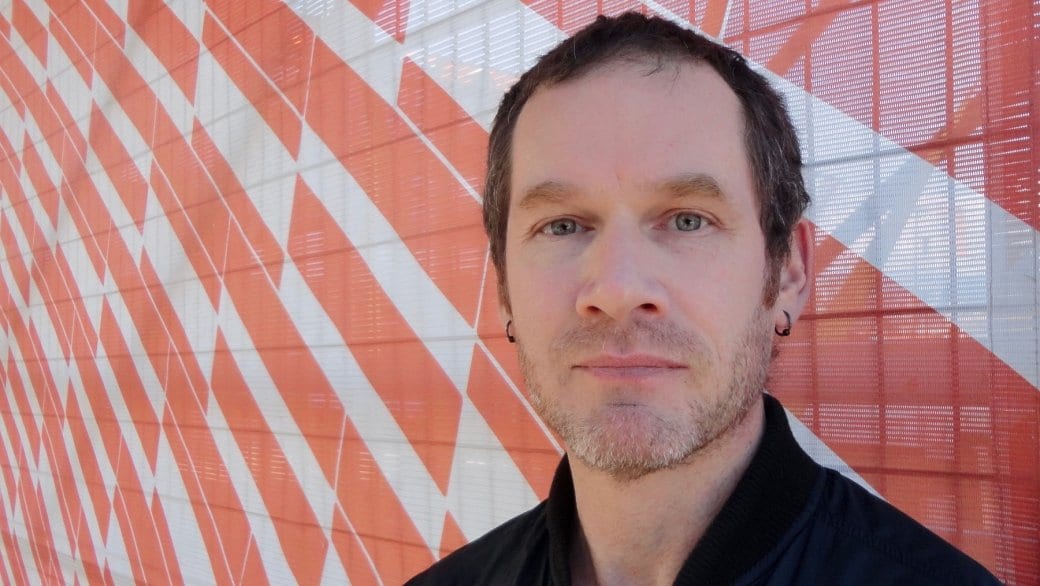Unlike the teenaged protagonists of his new novel, From Up River and for One Night Only, author Brett Josef Grubisic never tried to make it big in a New Wave band.
At one point, the English professor dreamed of setting up a dental practice. “Being an assassin, a cat burglar, and a world-renowned fashion designer were also in the cards,” says Grubisic, who now teaches at the University of British Columbia.
It’s 1980 in River Bend City, a fictionalized Mission, BC. Four teenagers embark on a quest to win the Battle of the Bands at a divey pub in nearby Bottlesburg, which will surely kick off their two-year plan to stardom in New York City. Slinging fried chicken at Brownie’s isn’t going to pay for a Yamaha synth, so the teenagers enter an illicit adult world to get what they need. They must come up with instruments, outfits, fake IDs — and a slew of excuses to cover their tracks.
Of the bandmates, the two guys are dismissed by their River Bend City peers as “corn-holing faggots.” Their sisters, contending with gender-streaming aptitude tests recommending life as a homemaker or typist, recognize the future is equally bleak if they stay put. Their heroes? Deborah Harry, as real fans know her, and Pat Benatar because “she’d once slaved as a bank teller in some rinky-dink American town . . . The woman deserved total respect for dragging herself out of that pit.”
“They’ve been told by the world they know to not expect much,” Grubisic explains. “To that they basically say, ‘Screw you, we’ll do what we want, consequences be damned.”
From Up River is not your typical coming-of-age story. “I’ve read countless coming-of-age stories that end with the summer after graduation and with the kid all ready to tackle the world as a fully-formed adult,” Grubisic says. “To me, it’s a fiction that a person is both ‘mature’ and ‘set’ at that age. I wanted to comment about how much change happens after you’re ‘officially mature’ and how incredibly unpredictable it all is.”
The quest to get out of a stifling hometown is a familiar one to many queer people, and the novel investigates strategies needed to get through it. “For the gang, home is — like school — about social performance. When they’re with their parents, they play at being the kids their parents want,” Grubisic says.
Unlike some stories of gay adolescence, there is no pivotal moment of coming out. For Jay and Gordyn, the struggle of being gay teenagers is not in realizing who they are, but in navigating a homophobic environment.
“Like Jay, I hid in plain sight for much of high school,” Grubisic says. “When I fit in it was as straight. Gradually, though, relationships with arty drama class guys changed my reputation. One of my two close friends then was very much like Gordyn and was regularly mocked, ridiculed, and tormented by the jock crowd for being queer.”
The boys’ conscripted bonding moments with their dads yield some particularly strange scenes, like a barbershop quartet complete with waxed moustaches for Gordyn, and a father-son construction project for Jay, whose dad delivers the casually misogynistic directive, “You hold ‘er, I’ll screw ‘er.”
“The manly advice coming from the mouths of [the dads] is just a notch away from word-for-word actual,” Grubisic says.
No research was required for this novel, he says. “Like Jay . . . I designed and stitched together satin disco outfits for my sister — in secret — when I was in elementary school. And she and I imagined that once we left home, we’d divide our time between Paris and New York.”
But ultimately, this is a work of fiction. For Grubisic, “there was no band, no fake ID, no van, no prostitution.”
“I admire the moxie of [these] kids,” he says. “They’re imaginary, though. I might have fantasized about that kind of thing, but my home life was way sadder and damaging. And less easy to escape or slough off. Unlike in the novel, that took years and was far less assured.”
This is the second novel Grubisic has set in River Bend City. The first, The Age of Cities, was a finalist for the Vancouver Book Award. He plans a third to complete the trilogy.
From Up River and for One Night Only
Book Launch
Saturday, April 23, 2016, 7pm
Mole Hill Co-op, the Community Room, 1151 Pendrell St (laneway entrance)
blogs.ubc.ca/brettjgrubisic/2016/03/11/ready-set-go-launching-from-up-river-and-for-one-night-only/

 Why you can trust Xtra
Why you can trust Xtra


